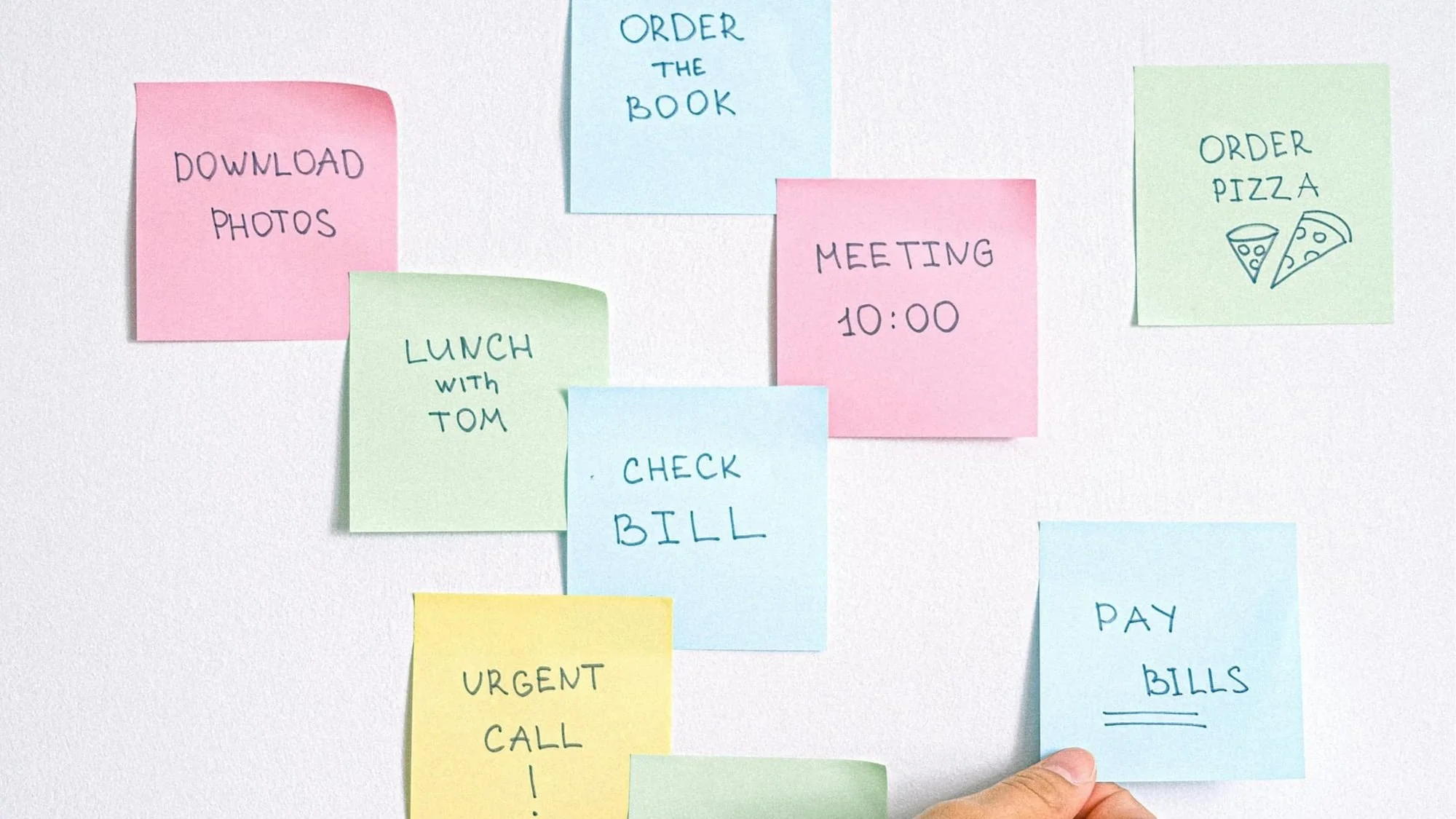Start Saving Hours Every Week With a Smarter Task System
Photo by Anna Shvets
“I’ve tried using a task app in the past, but it was more work than it was worth."
“I tried using a task app, but with all the overhead I was spending updating things, I could have just been DOING the things.”
Have you ever said something like that to yourself?
If so, you wouldn’t be the first.
In fact, I hear both of these statements all the time from new coaching clients and when I lead workshops for corporate clients.
In general, there are 2 camps:
People who can’t live without their task app and
People who’ve had such bad experiences with task apps, they’re willing to risk it by trying to use their memory to manage it all
If you find yourself in the first camp, well, I’m preaching to the choir; feel free to stay or go.
But if you find yourself in the second camp (where you likely have a graveyard of abandoned task apps on your phone, full of things you didn’t do 5 years ago) will you let me try to shift your perspective?
Look, I get it.
You’re moving fast, you’ve got more to do than you have time to do, and the emails and Slack messages wait for no one.
But I’m gonna argue 2 things:
Maintaining your system is a lot less work than you think.
Any time you put into maintaining your system will come back to you…in spades.
Unfortunately, there is no such thing as a system that maintains itself. (Not task apps, not physical organization systems, not engines, nada!)
And yes, even those fancy AI powered task apps still require input from your human brain.
But if you start thinking of your task system as fine-tuned engine that moves your day forward, and stop thinking of it as a cluttered garage full of things to do, you’ll spend less time updating, your system will never get stale (meaning that you won’t be too afraid to open it for fear of seeing all the “overdue” items with their scary red exclamation marks) and you’ll feel a whole lot more in control of your time.
So, how do you turn your task app into an engine that drives your work forward?
You make sure it’s thorough, and contains everything you need to do. (This way you don’t have multiple to-do lists making it hard to prioritize)
And you make sure that every task has a clear “next action”
You co-opt the “due date” field to mean “do date” so you can sort your system by when you need to take action (instead of by when something is ultimately do)
You make your task app easy to access and (therefore reducing friction re: updating)
Add the app to your phone’s home screen
Keep the window open on your computer all the time
Install every integration that makes sense (email, Calendar, Slack, Teams, etc.)
Start your day with your task app and keep it open all day (instead of checking at the end of the day to see what you did, and what you didn't)
As you complete a next action, update the task accordingly
Think: “do a task, update the task, move onto the next task”
When you start thinking of your task system as an engine rather than a repository, good things happen.
In addition to getting that nice little dopamine hit every time you check off a task, or a next action, and move it forward, you also get a boost from seeing your “today” list getting shorter as the day goes on, and you have the added benefit of not having to “update your task list” later, (which, let’s face it, you weren’t likely to do anyway).
You save tons of time overall because it’s a lot faster to document what you are doing when you’ve just done it vs. waiting until later when you’ll need to think about it again (Did you really send that email? Or is it still in drafts?).
Remember:
If you wait until the end of the day (or, week!), updating your system becomes yet another thing on your to-do list. But if you update as you go, by the end of the day the only things left on your list for the day are the things you didn’t get to. And you can reprioritize those for the future.
And lastly, even if you do all of this, you might, at some point, find yourself in a position where you say:
“My system was working great…until I got too busy and I stop using it”.
And don’t worry, that can happen to anyone!
But here’s a (perhaps) counterintuitive truth:
When you’re super busy, that’s actually when you need your system the most so that you can stay on top of everything and ensure that nothing falls through the cracks without relying on (hardly reliable and pretty stressful) memory.
(And, if you’re not yet using a task system/app, but have a sneaking suspicion that using one might help you to do more and stress less, well, you’re right.


